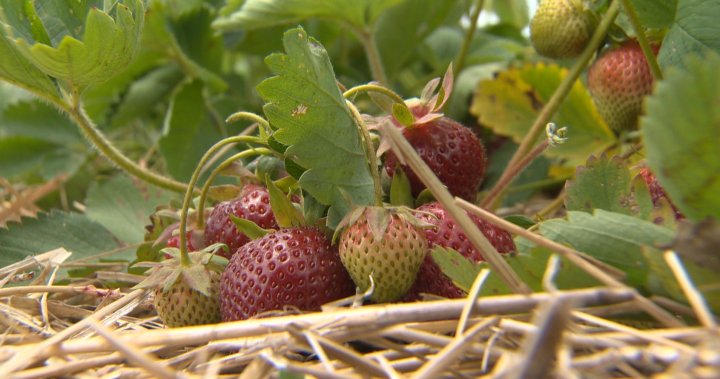The strawberry season at Reesor Farm Market in Markham, Ontario has started earlier than ever before, thanks to a mild spring and heat wave pushing the strawberries to fruition quickly. This early start has resulted in a surge of customers excited to pick fresh strawberries. However, the accelerated season also means that the season will likely end early, as strawberries need to be picked quickly to avoid spoiling. The early onset of summer, with humidex values reaching up to 45°C in many communities, has presented challenges for both farm products and essential labor. Extreme heat can result in crop loss and pose health and safety concerns for farm workers.
The heat wave in Canada has also raised concerns about the impact of climate change on the agricultural sector. Farm worker organizer Hannah Kaya points out that provinces like Ontario lack specific occupational health and safety regulations to address heat stress, leaving farmers to determine their own safety protocols. In addition to ensuring workers have adequate breaks during the heat, employers must also invest in watering systems to combat drought, leading to added labor and infrastructure expenses. The National Farmers Union is calling on the federal government to assist agricultural employers in meeting the added demands resulting from the changing climate.
Despite the challenges posed by the heat wave, farmers like Sara Wood in Mitchell, Ontario are optimistic about the resilience of the food supply chain. Wood, who is a vice-president with the Ontario Federation of Agriculture, is taking measures to ensure that animals on farms have access to water and fans to stay cool during the hot weather. Farmers have techniques to adapt to the sudden surge in heat, such as tilling the soil less and planting trees to alleviate heat. These best management practices help farms maintain sustainability in the face of changing climate conditions.
At Reesor’s Farm, owner John is working hard to ensure that his produce meets the demands of customers, even in the face of the extreme heat. While the strawberries are thriving, John has reduced his staff’s hours to ensure their safety in the scorching temperatures. Despite the challenges, John emphasizes the importance of supporting local farmers and shopping local to ensure the sustainability of the agricultural sector. With the strawberry season well underway and preparations being made for the Canada Day long weekend, Reesor’s Farm is focused on meeting the needs of its customers while adapting to the changing climate conditions.
In conclusion, the early strawberry season and heat wave in Canada have presented challenges for farmers and farm workers. The increasing temperatures and lack of specific regulations to address heat stress pose risks to crop yields and the well-being of those working in the agricultural sector. Farmers are adapting to the changing climate conditions by implementing best management practices and investing in infrastructure to mitigate the impact of extreme heat. Despite the challenges, farmers like John Reesor remain committed to providing fresh, locally grown produce to their customers and highlight the importance of supporting local agriculture in the face of climate change.


